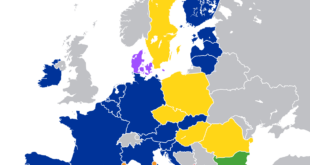GS-2
1.USTR
- Recently, the Office of the United States Trade Representative (USTR)has said thatthe Digital services taxes adopted by India, Italy and Turkey discriminate againstUS companies and are inconsistent with international tax principles.
THE OFFICE OF THE UNITED STATES TRADE REPRESENTATIVE (USTR):
- It is responsible for developing and coordinating US international trade. Section 301 (US Trade Act) gives the USTR broad authority to investigate and respond to a foreign country’s action which may be unfair or discriminatory as well as negatively affect US commerce.
- Adopted through the 1974 Trade act, the Section allows the US President to impose tariffs or other curbs on foreign nations.
- However, the law mandates consultations with trading partners.
DIGITAL SERVICES TAXES (DSTS):
- These are the adopted taxes on revenues that certain companies generate from providing certain digital services. E.g. digital multinationals likeGoogle, Amazon and Apple etc.
- The Organisation for Economic Cooperation and Development (OECD) is currently hosting negotiations with over 130 countries that aim to adapt the international tax system. One goal is to address the tax challengesof the digitalization of the economy.
- Some experts argue that a tax policy designed to target a single sector or activity is likely to be unfair and have complex consequences.
- Further, the digital economy cannot be easily separated out from the rest of the global economy.
INDIA’S TAX ON DIGITAL COMPANIES:
- The government had moved an amendment in the Finance Bill 2020-21imposing a 2% digital service tax (DST) on trade and services by nonresident e-commerce operators with a turnover of over Rs. 2 crore.
- This effectively expanded the scope of equalisation levy that, till last year, only applied to digital advertising services.
- Earlier, the equalisation levy (at 6%) was introduced in 2016 and imposed on the revenues generated on business-to-business digital advertisements and allied services of the resident service provider.
- The new levy came into effect from 1 April 2020. E-commerce operators are obligated to pay the tax at the end of each quarter.
USTR’S INVESTIGATION REPORT:
- The DST in India is discriminatory because it exempts Indian companies and targets non-Indian firms.
- This hits US firms which dominate the technology industry. 119 companies that it identified as likely liable under the digital services tax,86, or 72%, were American.
- USTR estimates that the aggregate tax bill for US companies could exceed USD 30 million per year.
- The USTR has determined that India’s DST is unreasonable or discriminatory and burdens or restricts US commerce and thus is actionable under Section 301(US Trade Act).
INDIA’S STAND:
- India has described the equalization levy as a fair, reasonable and non-discriminatory tax aimed at all offshore digital economy firms accessing thelocal market and has denied it targets US companies.
- It seeks to ensure a level-playing field with respect to e-commerce activities undertaken by entities resident in India as well as those not residents in India or without permanent establishment in India.
- The government of India will examine the determination/decision notified by the US in this regard, and would take appropriate action keeping in view the overall interest of the nation.
- There was no retroactive element or extra-territorial application involved in the levy which applied only on the revenue generated from India.
- It is a recognition of the principle that in a digital world, a seller can engage in business transactions without any physical presence, and governments have a legitimate right to tax such transactions
CONCERNS:
- In the backdrop of an improper functioning of the World Trade Organization (WTO), the move could signal the start of more unilateral action by the US especially on the digital services front.
- In India’s case, the probe could potentially affect the outcome of a bilateral trade deal that India has been looking to forge with the US.
WAY FORWARD
- As India is racing towards becoming a digital giant, the 2% DST should be negotiated to avoid any hurdles in its implementation. Further, there needs to be international consensus on taxation on a digital economy.
SOURCE: PIB
 Chinmaya IAS Academy – Current Affairs Chinmaya IAS Academy – Current Affairs
Chinmaya IAS Academy – Current Affairs Chinmaya IAS Academy – Current Affairs



